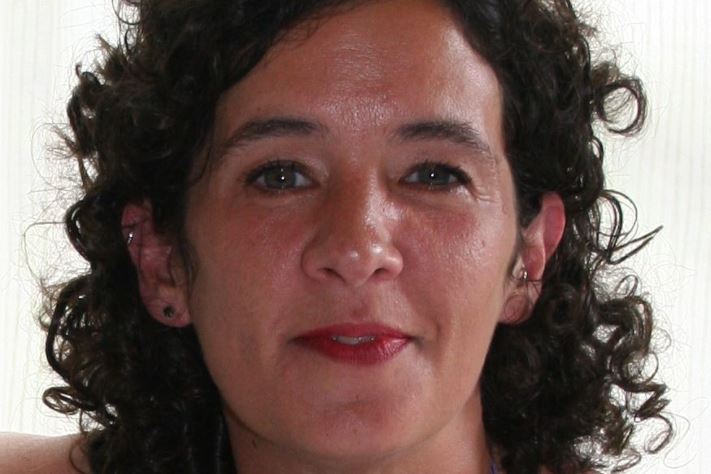22nd June 2018
A guest blog by Dr Gill Thomson & Louise Hunt, School of Community Health and Midwifery, University of Central Lancashire, Preston, who presented “The importance and challenges of peer support” at our recent breastfeeding conference held jointly with the RSPH.

Dr Gill Thomson, School of Community Health and Midwifery, University of Central Lancashire, Preston
Breastfeeding peer supporters are women who have breastfed their own child(ren), received training, and can share similar characteristics (i.e. age, ethnicity, socioeconomic background) to the women they support. Breastfeeding peer support (BPS) is an intervention designed to offer a flexible, needs-led complementary intervention to usual care, to encourage, support and promote breastfeeding.
The support offered by peers includes reassurance and encouragement, helps women to normalise their emotional and behavioural responses, instrumental guidance to help women resolve breastfeeding challenges and information on health benefits and infant behaviours; with referrals to more specialist support organised as required. BPS can be offered across the perinatal period, in various formats (i.e. text, telephone, face-to-face, group-based) and locations (i.e. home, hospital, community venues). A survey study undertaken by Grant et al (2018) found that of the 58% of NHS Trusts in the UK who responded, 56% offer some form of BPS, with significant variations in training, supervision and role of peer supporters noted.
A number of qualitative and mixed-methods studies highlight positive impacts of BPS. These studies demonstrate how receipt of support from a peer who understands the realities of breastfeeding, and who women can connect with, enabled women to form positive attitudes towards breastfeeding and had a direct influence on breastfeeding behaviours (Nankunda et al., 2010; Thomson et al, 2012; Thomson et al, 2013). This literature also demonstrates that BPS can help to improve women’s wellbeing through increased confidence and reduced stress, anxiety and social isolation. BPS can also produce community level changes, such as through the creation of breastfeeding groups where women can feel a sense of belonging and normality and to help change social attitudes towards breastfeeding (Quintero Romero et al., 2006).
Cochrane reviews report that additional breastfeeding support from professionals, lay people (i.e. peer supporters), or both, significantly improves duration of breastfeeding (Renfrew et al., 2012; McFadden et al., 2017). Whereas, a meta-analysis that focused on BPS only, found BPS interventions undertaken in the UK and other high-income countries to be ineffective (Jolly et al., 2012). However, it is important to reflect that the experimental BPS studies included in the meta-analysis differed in design, delivery and context, and were not always delivered as intended.
Trickey et al., (2018) used a realist approach to undertake an in-depth exploration of one-to-one BPS interventions to identify ‘what works, for whom, in what circumstances and in what respects, and how?” (Pawson & Tilley, 1997 p.1). This work highlights that while experimental studies of BPS are likely to differ from ‘natural’ organic projects, BPS interventions are frequently under-theorised.
A number of propositional statements were developed to explain how one-to-one experimental peer support might work. These statements highlight how BPS may be more effective if there is congruence with local infant feeding norms, integration within existing healthcare systems, and proactively delivered by peers in positive peer-mother relationships. A key finding from this study was how community and society factors influence individual behaviours, leading to the conclusion that enabling environments for breastfeeding need to operate at multiple levels (Trickey et al., 2018).
Currently, we lack overarching theories about how peer support might be working at community and societal levels. A holistic view of peer support interventions ‘in action’, taking into account the views of mothers, peer supporters, community health professionals and other key stakeholders would be valuable additions to the evidence base. We are currently involved in undertaking such a study, on a small scale.
Dr Gill Thomson & Louise Hunt, School of Community Health and Midwifery, University of Central Lancashire, Preston
References:
Grant, A., McEwan, K., Tedstone, S., Greene, G., Copeland, L., Hunter, B., Sanders, J., Phillips, R., Brown, A., Robling, M. & Paranjothy, S. (2017). Availability of breastfeeding peer support in the United Kingdom: A cross‐sectional study. Maternal & Child Nutrition, https://doi.org/10.1111/mcn.12476
Jolly, K., Ingram, L., Khan, K. S., Deeks, J. J., Freemantle, N., & MacArthur, C. (2012). Systematic review of peer support for breastfeeding continuation: Metaregression analysis of the effect of setting, intensity, and timing. British Medical Journal, 344(1), d8287-d8287.
McFadden, A., Gavine, A., Renfrew, M,J., Wade, A., Buchanan, P., Taylor, J,L., Veitch, E., Rennie, A,M., Crowther, S,A., Neiman, S., MacGillivray, S. (2017). Support for healthy breastfeeding mothers with healthy term babies (review). The Cochrane database of systematic reviews, issue 2. Art no.: CD001141. DOI: 10.1002/14651858. CD001141. Pub 5.
Nankunda, J., Tumwine, J. K., Nankabirwa, V., & Tylleskar, T. (2010). “She would sit with me”: mothers’ experiences of individual peer support for exclusive breastfeeding in Uganda. International Breastfeeding Joural, 5, 16.
Pawson, R., & Tilley, N. (1997) Realistic Evaluation. SAGE, London.
Quintero Romero, S., Bernal, R., Barbiero, C., Passamonte, R., & Cattaneo, A. (2006). A rapid ethnographic study of breastfeeding in the north and south of Italy. International Breastfeeding Journal, 1, 14-8.
Renfrew, M. J., McCormick, F. M., Wade, A., Quinn, B., & Dowswell, T. (2012). Support for healthy breastfeeding mothers with healthy term babies. The Cochrane Database of Systematic Reviews, 5, CD001141.
Thomson, G., Crossland, N., & Dykes, F. (2012). Giving me hope: women’s reflections on a breastfeeding peer support service. Maternal & Child Nutrition, 8, 340–353.
Thomson, G. & Crossland, N. (2013). Callers’ attitudes and experiences of UK breastfeeding helpline support. International Breastfeeding Journal, 8:3.
Trickey, H., Thomson, G., Grant, A., Sanders, J., Mann, M., Murphy, S., Paranjothy, S (2018). A realist review of one-to-one breastfeeding peer support experiments conducted in developed country settings. Maternal and Child Nutrition. 14(1). doi: 10.1111/mcn.12559. Epub 2017 Dec 6.

